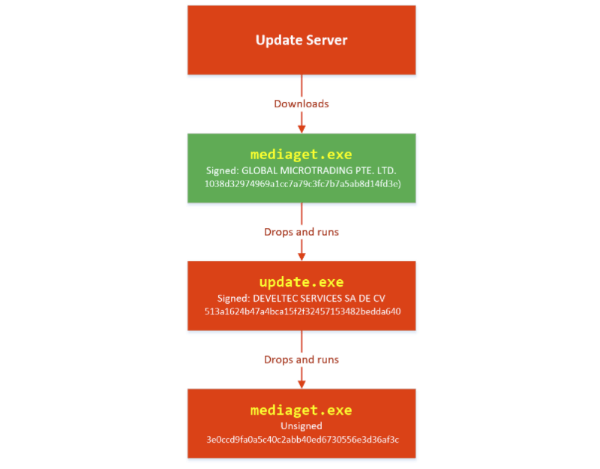
With the option to stream millions of tracks supported by an occasional ad, or free of ads for a small subscription fee, Spotify offered something that was more convenient than piracy.
In the years that followed, Spotify rolled out its music service in more than 60 countries, amassing over 160 million users. While the service is often billed as a piracy killer, ironically, it also owes its success to piracy.
As a teenager, Spotify founder and CEO Daniel Ek was fascinated by Napster, which triggered a piracy revolution in the late nineties. Napster made all the music in the world accessible in a few clicks, something Spotify also set out to do a few years later, legally.
“I want to replicate my first experience with piracy,” Ek told Businessweek years ago. “What eventually killed it was that it didn’t work for the people participating with the content. The challenge here is about solving both of those things.”
While the technical capabilities were certainly there, the main stumbling block was getting the required licenses. The music industry hadn’t had a lot of good experiences with the Internet a decade ago so there was plenty of hesitation.
The same was true of Sweden, where The Pirate Bay had just gained a lot of traction. There was a pro-sharing culture being cultivated by Piratbyrån, Swedish for the Piracy Bureau, which was the driving force behind the torrent site in the early days.
After the first Pirate Bay raid in 2006, thousands of people gathered in the streets of Stockholm to declare their support for the site and their right to share.
Pro-piracy protest in Stockholm (Jon Åslund, CC BY 2.5)
Interestingly, however, this pro-piracy climate turned out to be in Spotify’s favor. In a detailed feature in the Swedish newspaper Breakit Per Sundin, CEO of Sony BMG at the time, suggests that The Pirate Bay helped Spotify.
“If Pirate Bay had not existed or made such a mess in the market, I don’t think Spotify would have seen the light of the day. You wouldn’t get the licenses you wanted,” Sundin said.
With music industry revenues dropping, record labels had to fire hundreds of people. They were becoming desperate and were looking for change, something Spotify was promising.
At the time, the idea of having millions of songs readily and legally available was totally new. Many immediately saw it as an “alternative to music piracy” and even Pirate Bay founder Peter Sunde was impressed.
“It was great. It was always what was missing in the pirate services, that intuitive interface,” Sunde told Breakit.
Sunde also believed that The Pirate Bay and all the buzz around piracy in Sweden was a great boon to Spotify. But while the latter turned into a billion-dollar business that’s about to go public, Sunde and the other TPB founders still owe the labels millions in damages.
“Without file-sharing, The Pirate Bay and the political work done by Piratbyrån, it was not possible to get the licensing agreements Spotify received,” Sunde said. “Sometimes I think I should have received 10, 20 or 30 percent of Spotify, as a thank you for the help.”
In addition to creating the right climate for the major record labels to get on board, The Pirate Bay also appears to have been of more practical assistance.
When Spotify first launched several people noticed that some tracks still had tags from pirate groups such as FairLight in the title. Those are not the files you expect the labels to offer, but files that were on The Pirate Bay.
Also, Spotify mysteriously offered music from a band that decided to share their music on The Pirate Bay, instead of the usual outlets. There’s only one place that could have originated from.
The Pirate Bay.
Source: TF, for the latest info on copyright, file-sharing, torrent sites and more. We also have VPN reviews, discounts, offers and coupons.


 In recent years copyright holders have been rather concerned with the health of pirates’ computers.
In recent years copyright holders have been rather concerned with the health of pirates’ computers.  For millions of people around the world, subtitles are the only way to enjoy media in languages other than that in the original production. For the deaf and hard of hearing, they are absolutely essential.
For millions of people around the world, subtitles are the only way to enjoy media in languages other than that in the original production. For the deaf and hard of hearing, they are absolutely essential. In January, a coalition of Canadian companies
In January, a coalition of Canadian companies 
 With millions of visitors per day, pirate streaming site
With millions of visitors per day, pirate streaming site  The Pirate Bay is arguably the most widely blocked website on the Internet. ISPs from all over the world have been ordered by courts to prevent users from accessing the torrent site.
The Pirate Bay is arguably the most widely blocked website on the Internet. ISPs from all over the world have been ordered by courts to prevent users from accessing the torrent site. 

 First released in 2010,
First released in 2010, 

